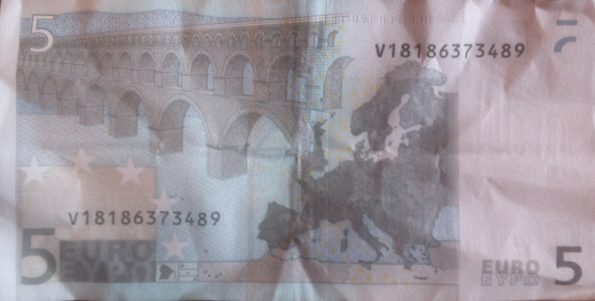Search
To search for an exact match, type the word or phrase you want in quotation marks.
A*DESK has been offering since 2002 contents about criticism and contemporary art. A*DESK has become consolidated thanks to all those who have believed in the project, all those who have followed us, debating, participating and collaborating. Many people have collaborated with A*DESK, and continue to do so. Their efforts, knowledge and belief in the project are what make it grow internationally. At A*DESK we have also generated work for over one hundred professionals in culture, from small collaborations with reviews and classes, to more prolonged and intense collaborations.
At A*DESK we believe in the need for free and universal access to culture and knowledge. We want to carry on being independent, remaining open to more ideas and opinions. If you believe in A*DESK, we need your backing to be able to continue. You can now participate in the project by supporting it. You can choose how much you want to contribute to the project.
You can decide how much you want to bring to the project.

Last 21 December, during the Sessions of the AAVC debates about the art system in Catalonia, “Crisi, incertesa i oportunitats”, Carles Guerra, curator at MACBA, referred to a comment that had been made to him years before: “Barcelona is very well equipped” –they said– (…) we’ve enjoyed a certain state of wellbeing, “however, something is lacking in production, I don’t know whether it’s a case of suffering a crisis or bewailing a drama for art to have added valued”.
But what really happens in a crisis context? The crisis affects institutions and changes the codes of heteronomy that govern the field of art, that couldn´t do anything on its own and has always needed the intervention of another sphere (paradoxically) in order to be able to maintain a certain degree of autonomy, be it from the political or economic sphere, its two greatest enemies and allies.
The so-called first world countries have experienced a public institutionalised system and a state network supporting the production of art that in many cases have managed to supplant, through grants and institutional aid, the mechanisms of commercial recognition. Their disappearance has repercussions on the conditions of autonomy of the field and on the very status of the artist, aside from whether he/she is also able to perform in other areas, such as education.
The crisis affects this system and also its networks of recognition and legitimation. We are going through a moment of transition in which the social-democratic system that used culture as a symbolic capital of great importance for the development of society and economy is disappearing, the paradigm, of research and thought with a universal projection, is being substituted by a neo-liberal model that demands more rapid productivity from culture.
To many of the speakers during the debate in Hangar it seemed that the independent agent was called upon to save art, given its capacity to generate “marginal action”, that is, its capacity to coordinate beyond the institution and connect beyond regional frontiers. The crisis doesn´t serve just as a source of inspiration, changing the production of meaning in the works themselves, but also impoverishes the surrounding reality, to the extreme that it makes it necessary to look that bit further afield, to institute international networks that serve to support creation. Trans-territoriality has become a question of survival, more than a simple vanity for international recognition or the illusion of playing in another first division. This subject also leads us to another dualism, of subversion and hegemony whereby entities and individual agents are the ones called on to confront the institutional crisis, taking on a liberating role with a certain hint of subversion.
Usually in countries in crisis, it is the market or the international mechanisms of recognition that are the ones that grant the artist (curator, agent) this interstice of freedom that enables them to liberate themselves sufficiently from the local reality in order to be able to make devastating critiques of the system and establish themselves as a “cool” agent, subversive, scathing and capable of filling the institutional void.
A while ago I commented on what are termed the “new” artistic movements of the ex-communist countries that have experimented a commercial boom like nowhere else, in which art has passed from the tutelage of the State to that of the market. Despite the differences, it’s all about a transition in the field of art. One that recognises art as a space of negotiation, where the artist, an excellent apprentice of the diabolical game of the carrot and stick, opts to manipulate formulae that seizes terrain from investigation and cedes it for the implementation of recipes of proven international success; where there is no longer talk of a local audience so much as an international public that obliges it, on occasion, to make use of an arsenal of subjects of proven efficiency and a translation and simplification of languages.
The future will respond to what degree of self-determination the individual, the art agent actually counts on, to how these nuclei of independent management are constructed and according to what mechanisms of recognition manage to survive and take charge of research and serious nonconformist practices. Though by then, perhaps, we will no longer be able to discern when artists are talking about a sincere drama or a “favourable” situation that adds extra value to the work.

Mabel is convinced that everything is constructed in accord with norms that regulate the way we do things: identity, patterns of social behaviour, public membership, or the paradigms that govern artistic and curatorial practices. She thinks that developing a profoundly critical sense about everything we do leads us to question up to what point we are prepared to question these patterns and rules, even if it is only to enter into other schemata.
"A desk is a dangerous place from which to watch the world" (John Le Carré)